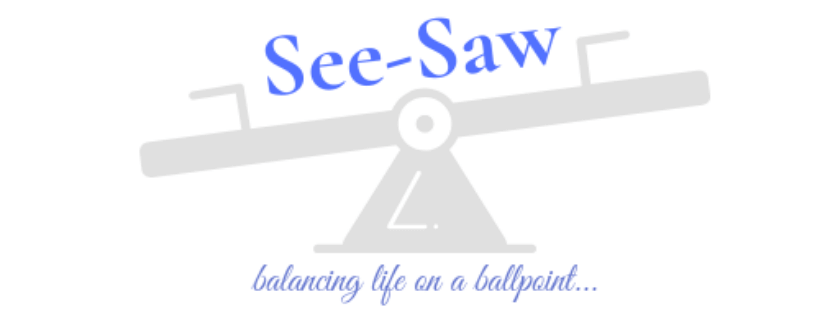

Hello, See-Saw-er folks! After a bit of a break over the end of year/start of year holiday palaver, I am delighted to be back and See-Saw-ing again! And for anyone who thinks that’s some kind of weird innuendo or a reference to my non-existent DIY skills, I am referring to the title and point of this blog – tackling over-ambitiously deep topics that affect the mental wellbeing of busy creatives and freelancers, and of course using my witty banter of odd metaphors and self-deprecation to talk about them.
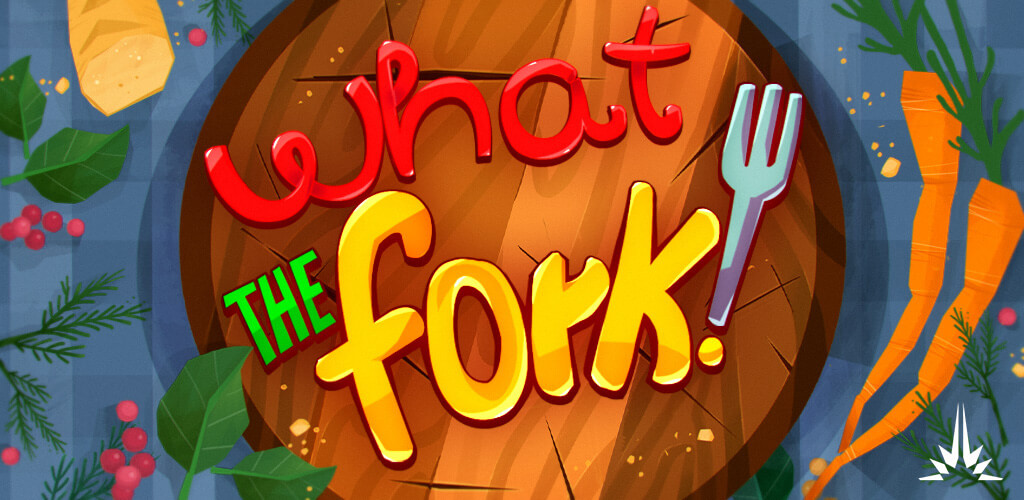
So I thought long and hard about what to use as my first topic of the year. My initial go-to was…wait for it…new beginnings. Yes, people, my brain really is that unimaginative in January. But then I thought a bit more about the whole New Year’s resolutions thing, got my first spate of writing/producing-related rejections for the year, and heard from a friend (the wonderful Joanne Jensen of Jensen Massage Therapy, who has an excellent blog and vlog you should all check out for your physical wellbeing) that 13th January is apparently statistically the most miserable day of the year. Sorry, I know that’s grim. But we’re past it for a whole year(-ish) now, so yay!
Anyway, one of the main reasons for this appears to be the fact that so many of us make New Year’s resolutions and begin to fail at them by 13th. For lots of people, it’s the mere fact of the failure itself that makes us miserable, even more than the thought of what we could have had if we had succeeded. Because what does it say about us that we failed? What kind of person does that make us? And of course, the classic: what will other people think?
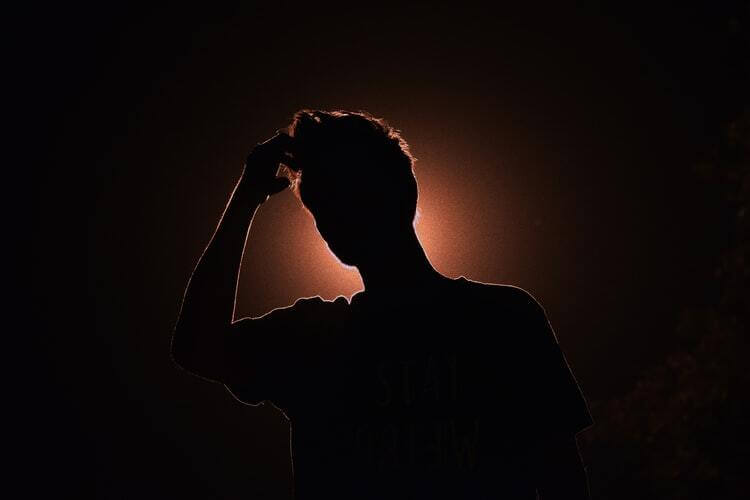
More to the point, what even is failure? I know you’ll be sitting there thinking, “well, that’s a stupid question. You’re just asking that to get your blog post going”. But genuinely, really, where do you draw the line under something and say, “that was a complete and utter fail”? The other day, I was listening to the incredibly successful novelist, Sebastian Faulks, being interviewed on the wonderful podcast, ‘How To Fail With Elizabeth Day’. When asked about his failures he said:

More to the point, what even is failure? I know you’ll be sitting there thinking, “well, that’s a stupid question. You’re just asking that to get your blog post going”. But genuinely, really, where do you draw the line under something and say, “that was a complete and utter fail”? The other day, I was listening to the incredibly successful novelist, Sebastian Faulks, being interviewed on the wonderful podcast, ‘How To Fail With Elizabeth Day’. When asked about his failures he said:

I don’t know about you, but this was an utter revelation for me. It raises the possibility that failure is a term that cannot be applied accurately in the moment. It takes perspective, the distance to see potential ‘failures’ as part of the bigger journey to judge whether they did in fact help you succeed in the long-run. And by definition, surely the last thing a failure should help you do is succeed. Right?
Wrong. As you’ve probably realised from the title of this post – bit of a giveaway, I know, but it’s fun, and makes use of my favourite swearing substitute from genius surreal comedy TV series ‘The Good Place’ – I am here to argue the case for failure. Not in a ‘lie down and take it like a doormat’ way, or even a world-weary ‘we’re all doomed to fail if we don’t fix the planet anyway’ way (true, but not the point of this post). Far from being the obstacle to our wildest dreams, the object of fear and despair, I would like to contend that if we go about it right, failure can actually be (oddly, I’ll admit) defined as the key to success.
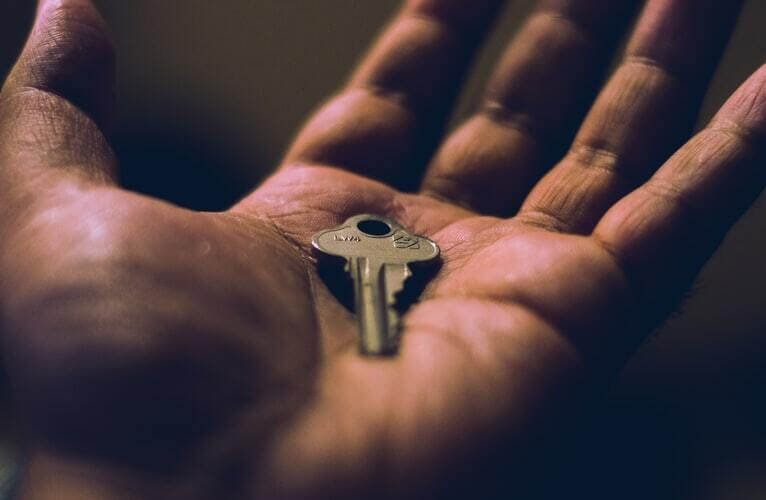
Wrong. As you’ve probably realised from the title of this post – bit of a giveaway, I know, but it’s fun, and makes use of my favourite swearing substitute from genius surreal comedy TV series ‘The Good Place’ – I am here to argue the case for failure. Not in a ‘lie down and take it like a doormat’ way, or even a world-weary ‘we’re all doomed to fail if we don’t fix the planet anyway’ way (true, but not the point of this post). Far from being the obstacle to our wildest dreams, the object of fear and despair, I would like to contend that if we go about it right, failure can actually be (oddly, I’ll admit) defined as the key to success.

Now, before I get into the hefty body of research behind this theory, I would like to just point out I’m really not one of those lucky people who just sails through life never experiencing failure. As a new writer with some pretty ‘run before you can walk’, lofty ambitions, I have experienced so many failures I have genuinely lost count. Or have I? By Sebastian Faulks’ reckoning, maybe they’re all leading up to one giant success…
But seriously, as anyone in the creative industries will know, rejection and failure are par for the course. I have had countless conversations with other writers about failure.


Now, before I get into the hefty body of research behind this theory, I would like to just point out I’m really not one of those lucky people who just sails through life never experiencing failure. As a new writer with some pretty ‘run before you can walk’, lofty ambitions, I have experienced so many failures I have genuinely lost count. Or have I? By Sebastian Faulks’ reckoning, maybe they’re all leading up to one giant success…
But seriously, as anyone in the creative industries will know, rejection and failure are par for the course. I have had countless conversations with other writers about failure.
Some ignore it, some take to the bottle or the biscuit tin, some double down on their pursuit of success. But the language of failure tends to be incredibly negative and fearful. We focus on the pain, the ‘waste’ of time and energy, the imaginary ‘what if’ scenario of success. Interestingly, when I talk to friends who are in steady careers and not dreaming of any kind of freelance, entrepreneurial or creative life, they often say things like “I think you’re really brave” or “That sounds scary” in relation to my efforts to get my writing out there in what is an extremely competitive world.
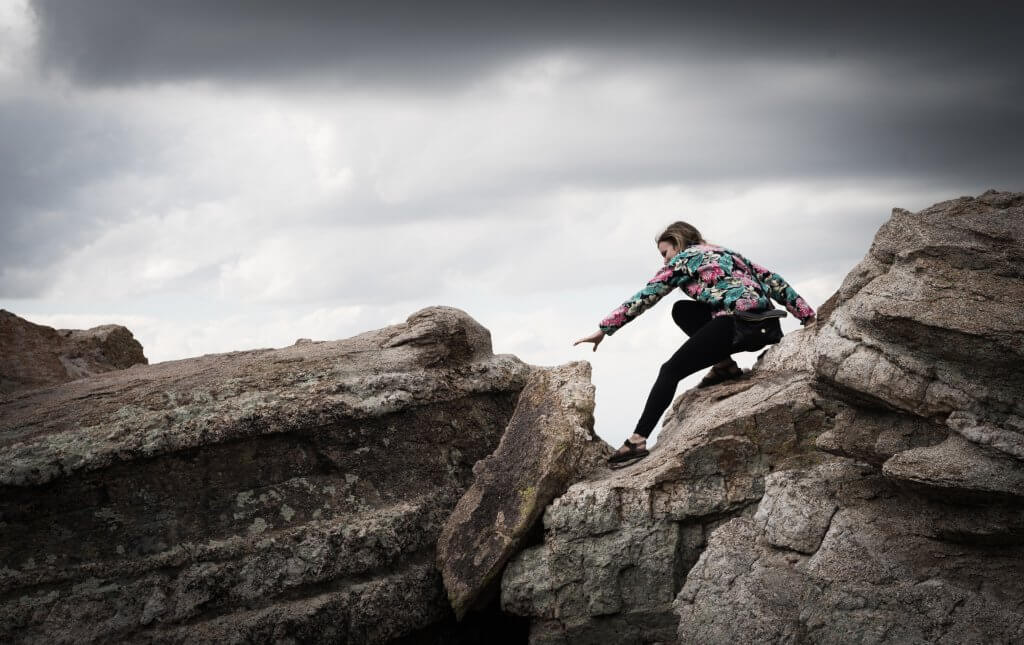
Some ignore it, some take to the bottle or the biscuit tin, some double down on their pursuit of success. But the language of failure tends to be incredibly negative and fearful. We focus on the pain, the ‘waste’ of time and energy, the imaginary ‘what if’ scenario of success. Interestingly, when I talk to friends who are in steady careers and not dreaming of any kind of freelance, entrepreneurial or creative life, they often say things like “I think you’re really brave” or “That sounds scary” in relation to my efforts to get my writing out there in what is an extremely competitive world.

The same language comes up again and again, reinforcing this idea that the very thought of doing something that comes with a high risk of failure is terrifying to us as humans.
And let’s be clear, I’m not saying failure feels good in the moment. I don’t know anyone who would say it does. I myself am an extremely sensitive and empathetic person, which is good for my writing, but means failing at things that matter to me hurts. A lot. I mean, it’s basically the reason I keep a stock of tissues on me at all times – there’s only so many times you can pretend a fly flew into your eye at Sainsbury’s when you’ve just got your fifth ‘no, thanks’ email of the week! The point of that sad little tale is I am one of the least immune people to failure out there. So if I can have a stab at losing the fear, you can too.


And let’s be clear, I’m not saying failure feels good in the moment. I don’t know anyone who would say it does. I myself am an extremely sensitive and empathetic person, which is good for my writing, but means failing at things that matter to me hurts. A lot. I mean, it’s basically the reason I keep a stock of tissues on me at all times – there’s only so many times you can pretend a fly flew into your eye at Sainsbury’s when you’ve just got your fifth ‘no, thanks’ email of the week! The point of that sad little tale is I am one of the least immune people to failure out there. So if I can have a stab at losing the fear, you can too.
I don’t even need to finish that sentence, do I? I mean, if a well-meaning responsible adult didn’t hammer that saying into you as a kid, it’s basically child neglect. Just in case, it ends “try, try and try again”. One of my enduring memories of my gran, who, bless her, is now largely lost to me through the myriad cruelties of dementia, is her pep talks, which always started with “you know, can do anything you want in life”, ended with “you don’t know until you try it”, and invariably had this little gem of wisdom in the middle. Cliché it may be, but could there be some nugget of truth to it? I mean, what if we could flip the script? Instead of treating failure as something to be feared, treat is as a lesson to be actively sought out because it will help us on our path to success.
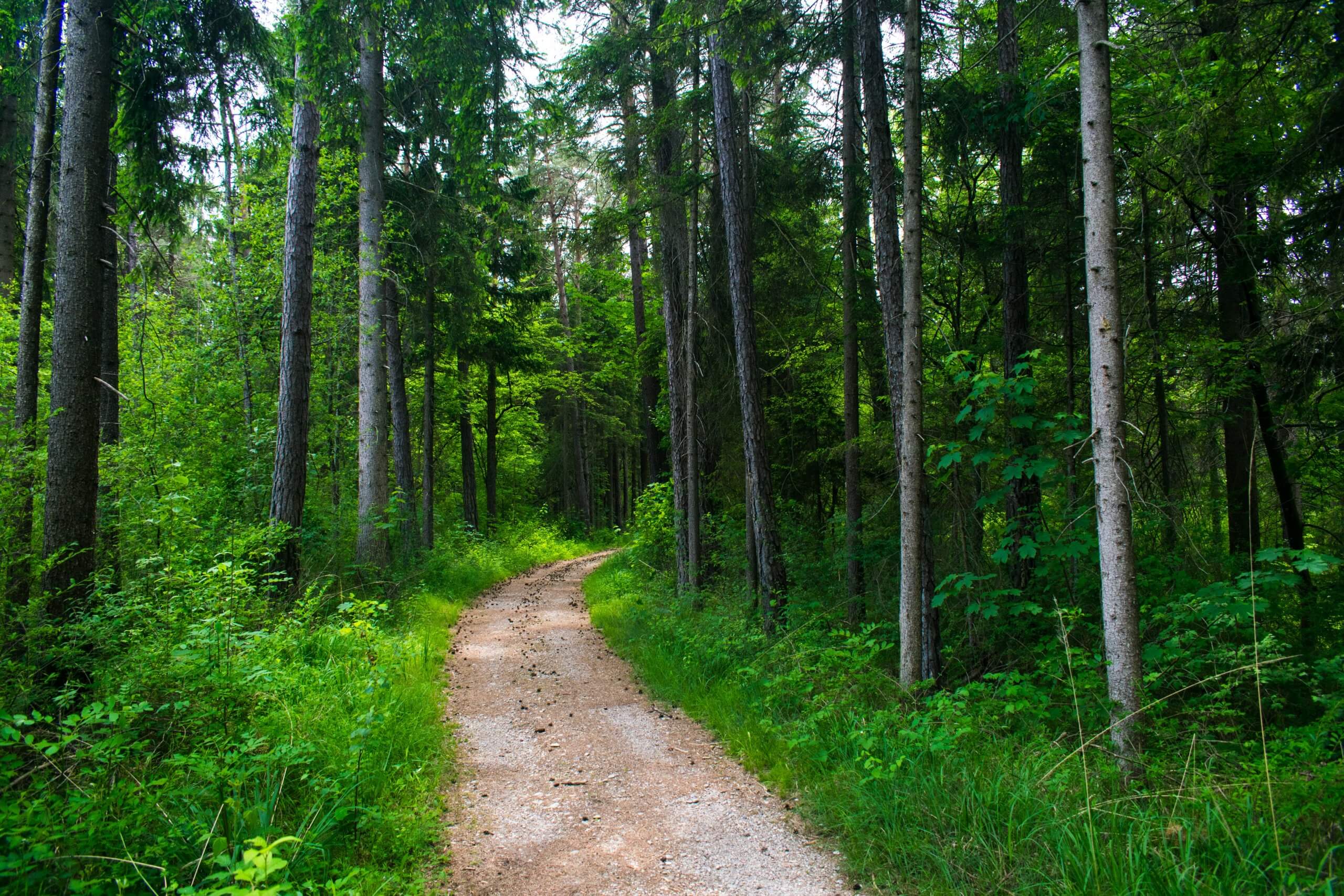
It may sound like well-meaning bullshit, but hold your judgement just a minute. In the introductory spiel to every episode of ‘How to Fail with Elizabeth Day’, the eponymous interviewer states:

And sure enough, during the 40 or so interviews with incredibly successful people (Fleabag’s Phoebe Waller-Bridge amongst them) I have listened to, phrases like “I failed there, but I’m actually so glad I did because it taught me X” have come up in nearly every case. These interviewees frequently insist they would either not have achieved X without said failure, or would not have achieved it as quickly. This attitude is simply too common to be a coincidence. In fact, if you want to get all up in the science, according to The Harvard Business Review, a number of studies have shown that:

Or in plain(er) English, we learn more from and change more as a result of failing than we do succeeding. If you look at it like that, failure is actually better than succeeding!
Certainly, when it comes to memory and education, there are a ton of studies that show students are more likely to retain things they have failed to retain previously. This is because unless otherwise instructed, human nature by and large tends to treat failure and success very differently. If we fail, the most common reaction is to analyse the failure minutely, go over every detail in our minds and come up with theories of why we might have failed, and what we might do differently next time.
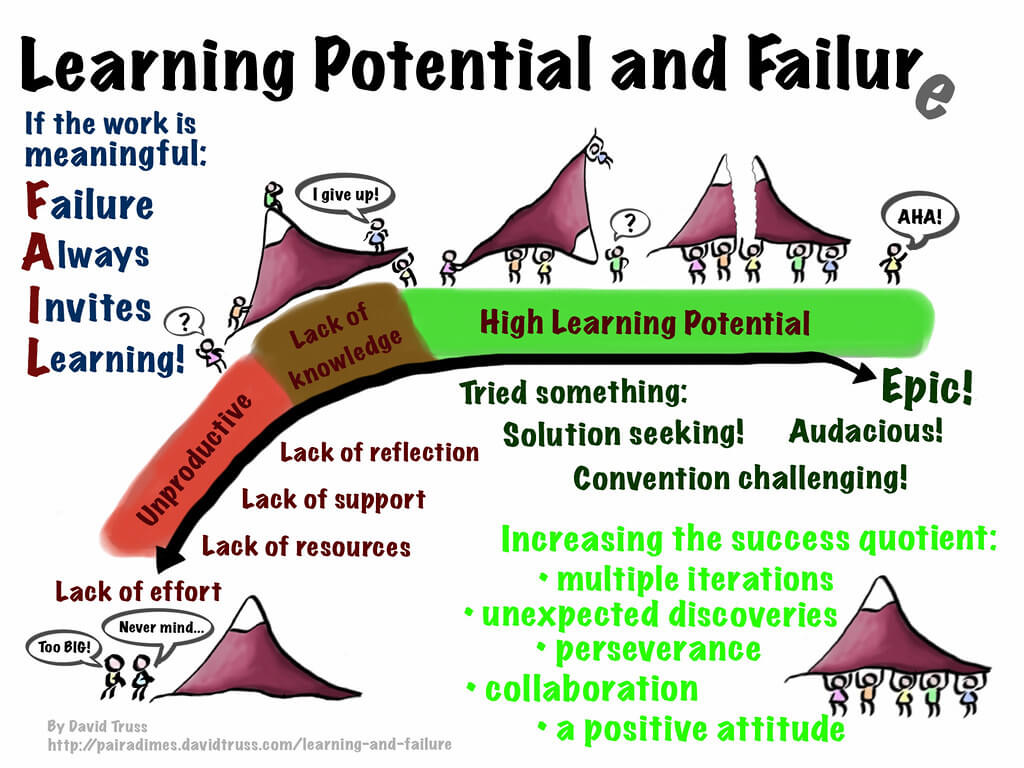
If we succeed, on the other hand, then we just skip straight to party mode and don’t give much thought to the whys and wherefores.
Certainly, when it comes to memory and education, there are a ton of studies that show students are more likely to retain things they have failed to retain previously. This is because unless otherwise instructed, human nature by and large tends to treat failure and success very differently. If we fail, the most common reaction is to analyse the failure minutely, go over every detail in our minds and come up with theories of why we might have failed, and what we might do differently next time. If we succeed, on the other hand, then we just skip straight to party mode and don’t give much thought to the whys and wherefores.

It’s worth mentioning at this point that I feel a total hypocrite, as I am currently sitting here trying to ignore a celebratory gift of prosecco for my success at getting into the BBC Writersroom’s Scottish Voices 2020 writers’ group. And I must admit, in such awesome circumstances, party mode is definitely a tempting option!
Anyway, back to failure, as I pry my eyes away from the prosecco…all of the above adds up in favour of the theory that failure is not only a necessary part of success, but is quite simply the best way to learn and grow as a person.


It’s worth mentioning at this point that I feel a total hypocrite, as I am currently sitting here trying to ignore a celebratory gift of prosecco for my success at getting into the BBC Writersroom’s Scottish Voices 2020 writers’ group. And I must admit, in such awesome circumstances, party mode is definitely a tempting option!
Anyway, back to failure, as I pry my eyes away from the prosecco…all of the above adds up in favour of the theory that failure is not only a necessary part of success, but is quite simply the best way to learn and grow as a person.
Because if we all got what we wanted instantly, with no adversity along the way, let’s face it, we’d all just be arrogant pricks. So there is that too.
Okay, so failure isn’t fun. As I admitted above, I find it quite painful. BUT if you look at it from a ‘big picture’, cosmic perspective, it prolongs your pursuit of your dreams, and gives you a stronger sense of purpose in life. Quit the sniggering, I did warn you I’d be tackling deep topics here! Society may talk about failure like it’s a bad thing, but the really bad thing happens when we stop risking failure. Because if we are not risking failure, what are we doing with our lives? Where’s the sense of adventure, excitement, and growth as you go through your life? Failure is where it’s at. And if you don’t want to take my word on it, take the word of probably the most successful novelist alive:

And with that absolute diamond, I will leave you to ponder your own failures and the positive impacts they have had on your life. But no matter what happens, no matter how many times you have to pick yourself up from a perceived fail and try to learn from it, make sure you follow this profound bit of life advice I got from one of the best Drama lecturers I ever had: “Be proud of your shit”. I’d like to think she didn’t mean it literally, but I did go to a university where we had to pretend to be octopuses (octopi?) as part of the interview process, so anything is possible…turds aside, the point she was trying to make is even if what you have made is absolute rubbish and falls at the first hurdle, you should be proud of it because at the very least, you have succeeded in creating said (metaphorical) shit in the first place, where many people wouldn’t have even tried.
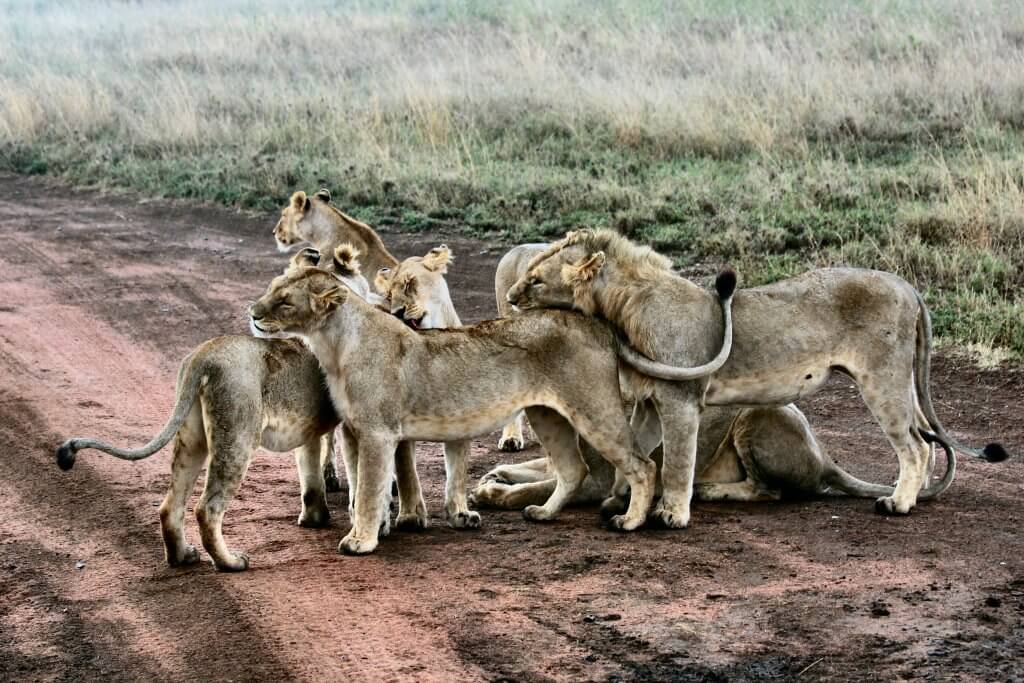
Take care, and remember to come back for next month’s post – out on 1st March! – to get some practical tips on how to make the most of your failures in the day-to-day. In the meantime, dream big, fail spectacularly, and See-Saw life like a pro. Xx